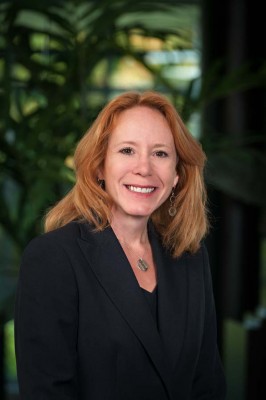
» My first job ever was making salads. I was working in a small, family-owned restaurant. I worked my way up to waitress, and by the time I left, was doing payroll. It taught me a lot about how to run a business.
» When I was in high school, a teacher told me I didn’t have mathematical aptitude. It’s true that I was almost flunking trigonometry, but when people tell me I can’t do something, I do it. So I went back to school and got a master’s degree in mathematics with a focus in statistics and operations research.
» My first job after college was as an actuarial assistant. I worked at State Farm Insurance Company. Spreadsheets became a part of my life.
» I interned in market research for a company during grad school, and within six months, was offered a job analyzing compensation and benefits data. I fell in love with HR, and I’ve been in HR ever since, a big part of that with Monsanto.
» Early in my career, a senior leader came into my office and sat down. I didn’t know him well, so it was strange. Then he just started telling me a story about his early career. He said he was able to get so many things accomplished, but ultimately realized no one wanted to work with him because he ran over people in the process. I thought about it, and realized he was implying that I did the same thing. That feedback was a gift. I made significant changes based on it.
» Moving to Harsco was a big change. It was a new city, but I connected with the people quickly, and my husband and I thought the time was right to make a change. My second child had just graduated from high school and my youngest daughter was in third grade.
» I like encouraging leaders to take risks on employees. Often leaders want people who have every skill needed and are ready to hit the ground running. But putting someone in a stretch role and watching him or her blossom is rewarding. Those have been my best business decisions.
» You have to speak your mind. Worse things happen when you don’t than when you do. In my first vice president role, a senior leader wanted to move an employee into a stretch role outside the United States. Every part of my being said that person wasn’t right for that part of the world, but I assumed the leader knew more than I did about it. Within four months, we had to pull the employee out of his job. We disrupted his life and family and the organization he was leading.
» Having functional skills necessary to do a job is important, but once I’ve determined a candidate has those, I look for honesty, humility, candor, collaboration, and agility.
» You have to roll up your sleeves and learn the business. People talk about HR programs, but we don’t have programs—we are enablers. Everything I do is about adding value to the business. We’re catalysts. We create tools that help leaders obtain and retain people and help them develop.
» I’ve learned that compensation and benefits are very emotional to people, and how you roll those programs out is just as important as what the program looks like.
» Diversity of thought is important to a team. You set the direction and let the team come up with the answer. You get better answers than you would alone.
» I’m an early riser. The St. Louis Cardinals are playing right now, my team, and my friends are disturbed that I’m not staying up until 12:30 to watch the game. I work until 6:00 or 6:30, work out, then have dinner with my daughter and husband.
» You have to continue to learn. Make sure you look outside the company. I try to attend at least one external seminar every year.
» It’s important to work smart, not long. It’s not about the long hours and face time; it’s about accomplishing your goals efficiently and effectively.
» How you get things done is just as important—if not more important—than
getting things done.
» Success to me is my family. I’ve been married for 23 years, and we have three children, two at the University of Missouri and one who’s in the fourth grade.

